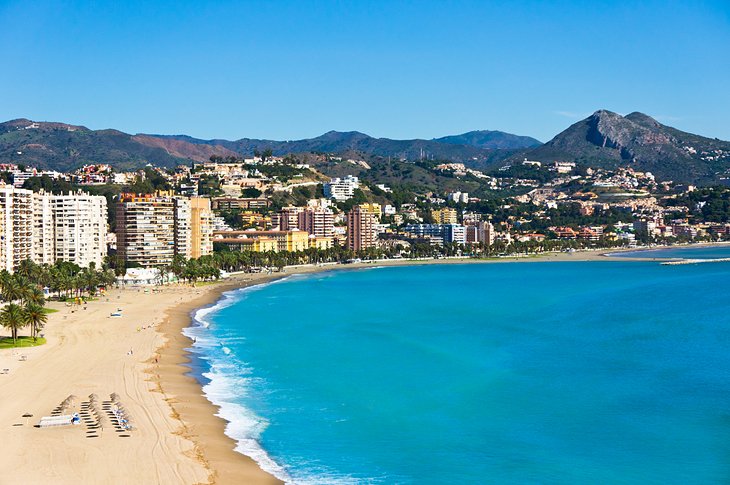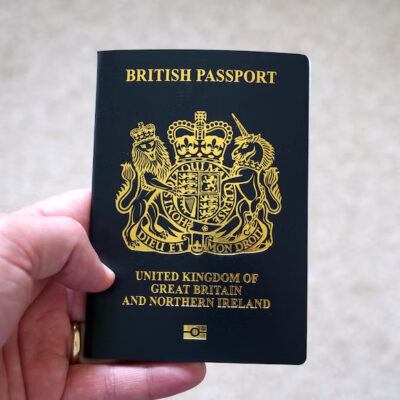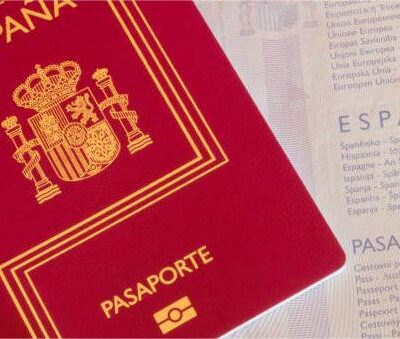
With Covid restrictions in the UK now almost completely lifted we’re checking what restrictions remain in popular holiday destinations. What restrictions might travelers face and what are travelers arrangements. Spain is the most popular holiday destination in Europe. It’s the number one holiday favourite with the British. So, is Spain open for tourists?
Travel Restrictions Between Spain and the UK
The documentation you must present on entry when travelling from the UK to Spain is determined by your reason for travel. If you are traveling to Spain for tourism you must show valid proof of one of the following:
- being fully vaccinated (with both doses of a two-dose vaccine or one dose of a one-dose vaccine) at least 14 days prior to arrival in Spain (date(s) of vaccination must be specified).
- having recovered from COVID-19 in the last 6 months. You can also use a medical certificate or recovery record to prove your COVID-19 status on entry to Spain.
There are some different entry requirements for children under 12 years old and those aged 12 to 17 inclusive.
Children under the age of 12 years old do not need to:
- complete an online Health Control Form before travel
- show proof of being fully vaccinated on entry to Spain
- take diagnostic tests prior to arrival
- show proof of having recovered from prior COVID-19 infection in the last 6 months
- Travellers from the UK who can either show proof of being fully vaccinated, or of having recovered from prior COVID-19 infection in the last 6 months, or who are aged under 12 years old, do not need to complete Spain’s Travel Health Control form. Everyone else must complete Spain’s Travel Health Control form no more than 48 hours before travel to Spain. See Spain’s Ministry of Health travel pages for more detail.
You may also be subject to additional checks at the point of entry including a temperature check, visual health assessment, or testing on arrival. Passengers may also be contacted and required to undertake a COVID-19 nucleic acid amplification test – NAAT (PCR or similar) at any point up to 48 hours after their arrival in Spain. More information can be found on the Spanish government’s Border Health Controls webpage.
Everyone (excluding children under the age of 12 years old, see Children and young people) arriving into Spain who have visited a ‘risk country’ in the previous 14 days must meet the requirements on the Spanish Ministry of Health Travel and COVID-19 page. The Spanish government reviews their ‘risk countries’ list every 7 days.
Requirements are country specific. You may get a minimum fine of €3000 if you do not comply with the requirement
Travel to the Balearic and Canary Islands from mainland Spain
To travel to the Canary or Balearic islands from mainland Spain, you may need to show a negative COVID test depending on the region you are travelling from. Check with your travel operator and the local authorities in your final destination for guidance on domestic entry requirements.
For specific information on travel to the Balearic Islands see the Balearic Islands Tourism board.
Travellers to the Canary Islands may be required by tourist accommodation providers to show evidence of a negative test, see the Canary Island tourist board website for details.
Public Spaces/Mask Wearing
Rules may vary between regions. You should refer to local and regional authorities for advice. You should continue to observe the following rules regardless of your whereabouts in Spain:
-
- obligatory use of face masks on public transport, in pharmacies, medical centres and care homes
The use of face coverings is mandatory for anyone over the age of 6 years if you are in the following situations:
-
-
- on any form of public transport in Spain
- visiting a hospital or medical centre (including other healthcare settings such as dentists, opticians, pharmacies etc.)
- visiting a care or nursing home
-
Face masks must cover the nose and mouth.
In addition to the mandatory use of face masks in the above situations, the Spanish government recommends you use them responsibly in the following circumstances:
-
-
- enclosed public spaces such as shops, cinemas, bars and restaurants
- at large events (e.g. concerts, sporting events) • when in the company of people considered clinically vulnerable or high-risk and social distancing of 1.5m cannot be observed • at family gatherings • in any other enclosed communal spaces open to the public
-
Those with respiratory problems or those unable to wear a mask due to other health conditions or disabilities are exempt.
- abide by any safety measures put in place by establishments such as hotels, bars, shops and restaurants to reduce the risk of COVID-19 such as social distancing and other public safety precautions
- wash your hands frequently and thoroughly and use hand sanitizer gel where soap and water is not available
What To Do If You Suspect You May Have Covid
If you think you have symptoms, including a fever or respiratory difficulties such as shortness of breath or a cough, you should call your regional hotline. Most of the regional hotlines listed have English speaking staff. Some regions offer alternative helpline numbers for those calling from non-Spanish mobile phones:
- Andalusia: Tel. +34 955 545 060
- Balearic Islands: Tel. +34 971 211 991
- Canary Islands: Tel. +34 928 301012 for Gran Canaria province or +34 922 470012 for Santa Cruz de Tenerife province
- Catalonia: Tel. +34 933 039 944
If you are staying in a hotel or resort, your accommodation provider may have a list of private doctors that they can call to assess your symptoms and conduct a COVID-19 test.
If you have arranged your own accommodation you can find details of English speaking doctors on our list of healthcare providers.
Remember that an EHIC or GHIC covers state healthcare only, not private treatment. You will be responsible for the cost of any treatment provided by a private doctor or hospital.
What To Do If You Test Positive While in Spain
If you are tested and the result is positive, you should call your regional hotline or one of the alternative helpline numbers as set out above and follow their advice. You are not required to self-isolate if you have mild or no symptoms but you should wear a mask and avoid crowded spaces.
Hotels and other accommodation providers may have their own COVID-19 protocols in place in the event a guest tests positive. You should abide by any safety measures put in place by your accommodation provider.
You should follow the advice of the local authorities at all times.
For information regarding access to healthcare in Spain see healthcare for UK nationals visiting Spain.
Find out more from the NHS website about EHIC and GHIC healthcare cover abroad
Plan ahead and make sure you:
- can access money
- understand what your insurance will cover
- can make arrangements to extend your stay and be away for longer than planned
EHIC or GHIC cards can not be used to cover any additional expenses you incur whilst staying in a quarantine hotel. Make sure you have access to funds to cover the costs or take out insurance, checking the policy has adequate cover.
Summary
Spain is open for tourists and keen to welcome them back. But remember there are restrictions which no longer exist in the UK. Remember too that rules change. The above was current as at 5th May 2022. Check back for up to date information.





